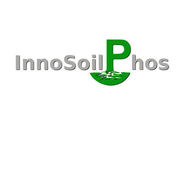Sulfur-Enriched Bone Char as Alternative P Fertilizer: Spectroscopic, Wet Chemical, and Yield Response Evaluation (2019.0)
Zimmer D., Panten K., Frank M., Springer A., Leinweber P.
Agriculture, 9 (1), 21
doi:10.3390/agriculture9010021
Abstract
Phosphorus- (P) rich bone char (BC) could be an alternative P fertilizer in sustainable agriculture; however, it has a low P solubility. Therefore, sulfur-enriched BC (BCplus) was tested for chemical composition and fertilization effects in a pot experiment. In BCplus sulfur, concentrations increased from <0.1% to 27% and pH decreased from 8.6 to 5.0. These modifications did not change P solubility in water, neutral ammonium citrate, and citric acid. A pot experiment with annual rye grass (Lolium multiflorum L.) and treatments without P (P0), BC, BCplus and triple superphosphate (TSP) was set up. The cumulative dry matter yield of the BC treatment was similar to P0, and that of BCplus similar to TSP. The plant P uptake was in the order P0 = BC < BCplus < TSP. Consequently, the apparent nutrient recovery efficiency differed significantly between BC (<3%), BCplus (10% to 15%), and TSP (>18%). The tested equilibrium extractions, regularly used to classify mineral P-fertilizers, failed to predict differences in plant yield and P uptake. Therefore, non-equilibrium extraction methods should be tested in combination with pot experiments. Additionally, particle-plant root scale analyses and long-term experiments are necessary to gain insights into fertilizer-plant interactions.